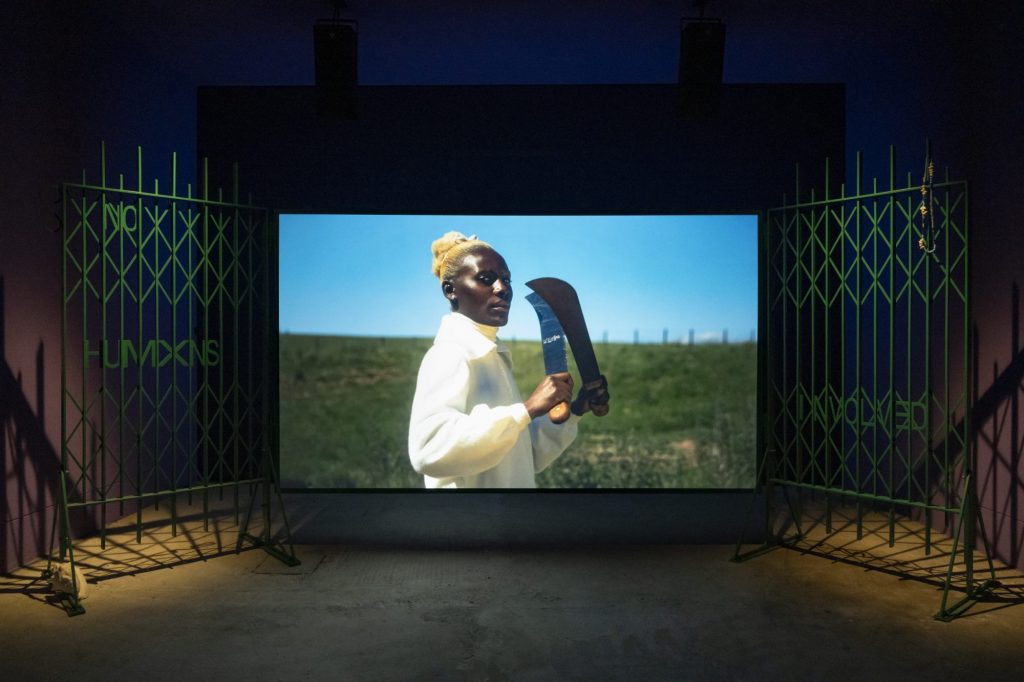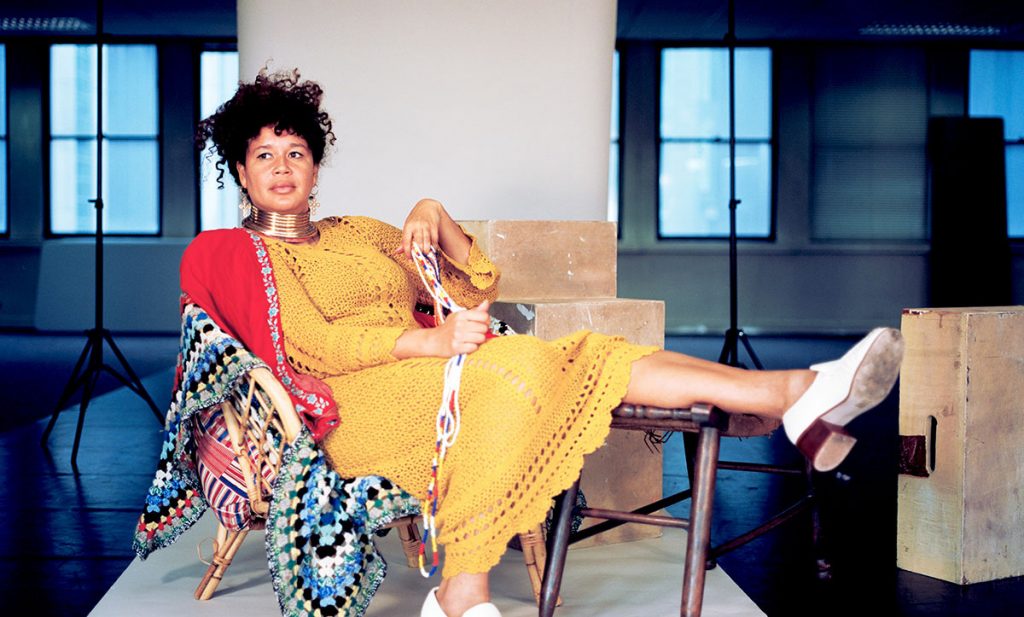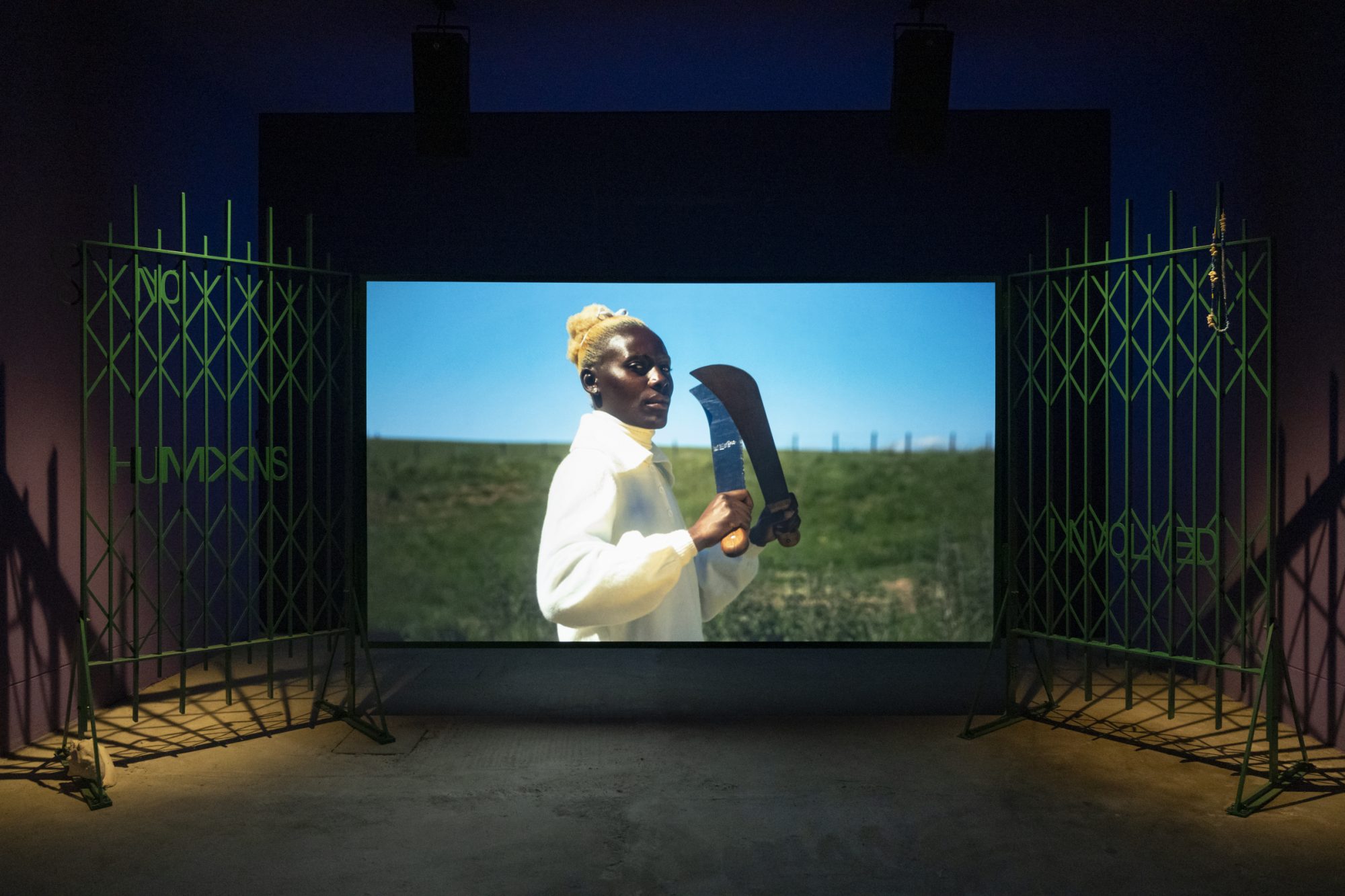Scotland + Venice 2022 for the 59th International Art Exhibition
23 April – 27 November 2022, Docks Cantieri Cucchini
Alberta Whittle has been commissioned to develop new work and will represent Scotland at the 59th International Art Exhibition – La Biennale di Venezia


Images: (left) deep dive (pause) uncoiling memory, 2022 Installation Shot Photographer Cristiano Corte, © Alberta Whittle. Courtesy of the artist, Scotland + Venice & Forma London /
(right) Alberta Whittle © Matthew A Williams
“Presented within the purple washed walls of the exhibition, her work rings out as a beacon of hope to a world crying out for change. Unveiling three new pieces of work in film, sculpture, and tapestry, deep dive (pause) uncoiling memory is an opportunity for all who enter to confront the tough realities of police brutality, colonisation, gender and race politics and climate change. In presenting us with these uncomfortable truths, deep dive (pause) uncoiling memory seeks to enable restorative justice and self-healing.” – Scotland+Venice
deep dive (pause) uncoiling memory – accompanying writing
Alberta Whittle:
“The luxury of amnesia is a really potent idea in my practice. For so long there was this complete reluctance and avoidance in discussing Scotland’s role within slavery and within plantation economies. There’s this sense that racism and police brutality is an English problem or an American problem, something that isn’t happening on these shores. There are ways in which the luxury of amnesia has been nurtured by Governments, by the stories we tell ourselves, by ways we find to avoid our own complicity with our own privilege – and it’s interesting to think about the conversations that are still missing.”
“There’s a numbness that can happen when you just see names and that endless footage of George Floyd being murdered. I wanted to find a way to think about these ideas without retraumatising myself or retraumatising the audience, and I think there are other ways to do that – and that led me to really return to love. I wanted there to be that place for love in the work because it ends at such a place of sorrow when I think about the endless list of names that are growing.”
“I wanted us to really remember the names we hear in the news; we have to resist becoming numb to them. I think there needs to be a reckoning with these ideas if we are really going to make change, including re-assessing the power we give to the police – that unchecked power – and also institutional racism which is a huge part of why all of this happens.”

